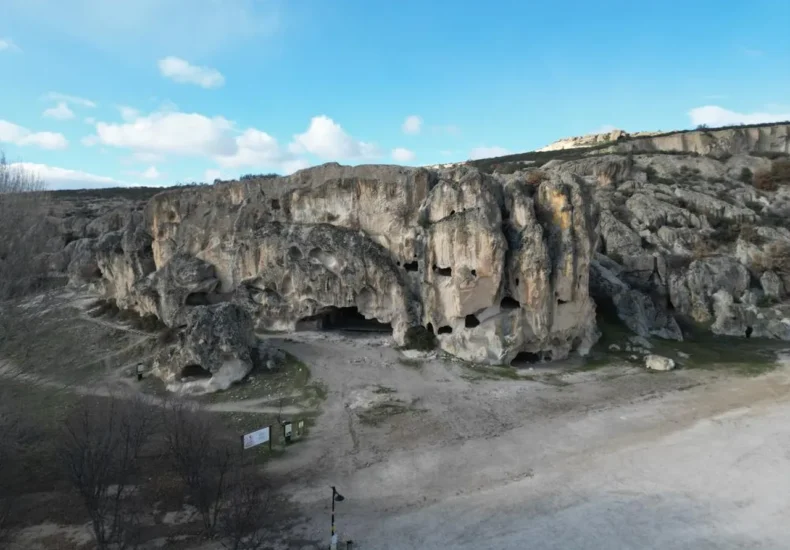
A 3,000-Year-Old Rock-Cut Toilet in the Phrygian Valley Is Attracting Visitors’ Attention
In the heart of western Anatolia, the Phrygian Valley continues to surprise visitors not only with its monumental rock façades and ancient sanctuaries, but also with striking details from everyday life. One of the most talked-about features in recent years is a 3,000-year-old rock-cut toilet, carved into a multi-story structure in the Ayazini area of

A Palace Beneath a Palace Discovered at Kültepe, Site of Anatolia’s Earliest Written Records
Excavations at Kültepe Kaniš-Karum, one of Anatolia’s most significant archaeological sites, have revealed an unexpected new layer of the past. Archaeologists have identified the remains of a monumental palace structure lying beneath a previously known palace, suggesting that centralized authority at Kültepe developed earlier—and on a larger scale—than previously understood. The discovery comes from ongoing

Neolithic Rock Art Discovered in Central Türkiye After Hiker Spots Ancient Cliff Figures
A routine walk through the mountains of central Türkiye has led to a discovery that could reshape the prehistoric timeline of the region. A local resident exploring a remote highland area noticed faint yet distinctive human-shaped markings on a rock face and immediately reported the find to authorities. Early examinations indicate that the figures belong
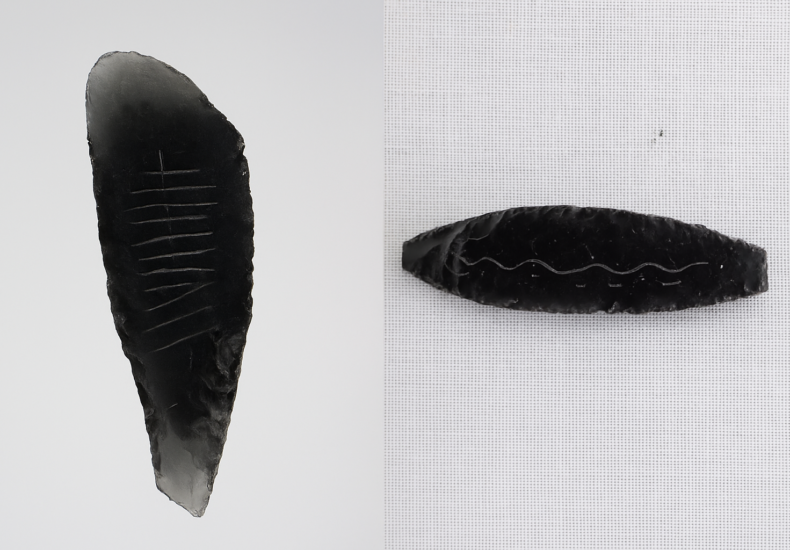
8,500-Year-Old Obsidian Mirrors Unearthed at Canhasan, Home to Anatolia’s Oldest Known Street
The Neolithic settlement of Canhasan in Karaman—long recognized for preserving Anatolia’s oldest known street—has yielded an extraordinary new discovery. During this year’s excavations, archaeologists uncovered a set of finely crafted obsidian mirrors dating back 8,500 years, along with decorated obsidian tools that reveal a distinct symbolic tradition within Central Anatolia’s early farming communities. A Settlement

Was Öksüt Castle Once a Hittite Stronghold? Local Experts Reconsider the Origins of a Massive Rock-Cut Fortress in Central Anatolia
High on the southern slopes of Mount Erciyes, the vast rock-cut complex of Öksüt Castle dominates the landscape with a network of carved chambers, tunnels, cisterns, and multi-level passageways. Although long known to the local population, the fortress is once again drawing attention as scholars and heritage specialists revisit longstanding claims of a Hittite-era origin
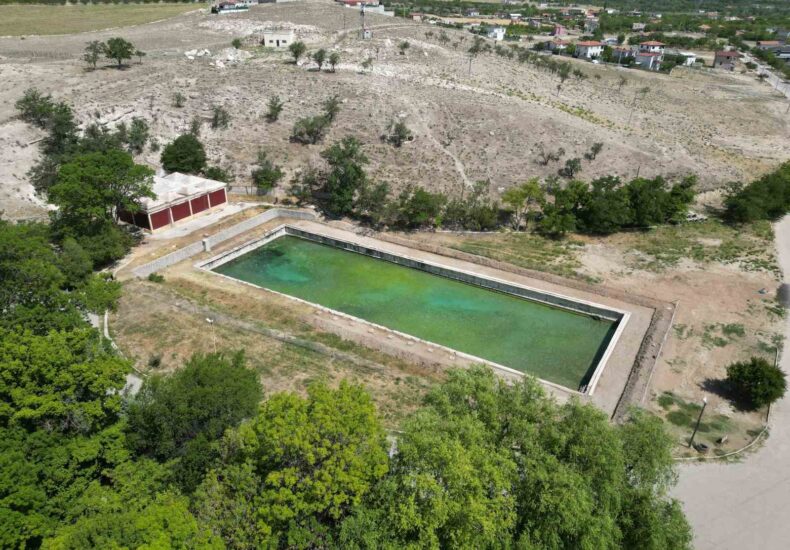
It was thought to be an ordinary water source: the Roman Pool of Bahçeli turns out to be a healing sanctuary
Eighty years after the last excavation, the Roman Pool in Bahçeli, a town near Bor in Niğde Province, has revealed an entirely new identity. Once believed to be a mere component of Tyana’s water supply system, the monumental pool has now been identified as part of a Roman healing sanctuary dedicated to the god Asklepios
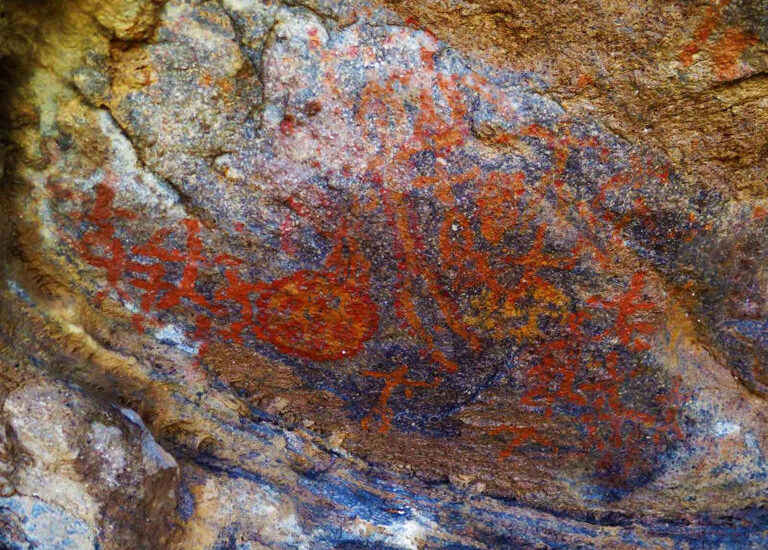
Before the Hittites: 8,000-Year-Old Rock Art Discovered in Central Anatolia
Archaeologists have discovered prehistoric rock engravings estimated to be around 8,000 years old in the Develi district of Kayseri, a region located in the heart of Central Anatolia. The discovery, now awaiting official registration, offers rare insight into one of the earliest symbolic traditions known in the region—long before the rise of the Hittite civilization.

Foundation of One of the Twelve Gates Built Against the Mongol Threat Unearthed in the Seljuk Capital Konya
Archaeological excavations in Türkiye’s central city of Konya have brought to light the foundation of one of the twelve monumental gates that once guarded the Seljuk capital during the reign of Sultan Alaeddin Keykubad I (r. 1220–1237). The newly uncovered structure, identified as the Larende Gate, formed part of the outer defensive walls commissioned by
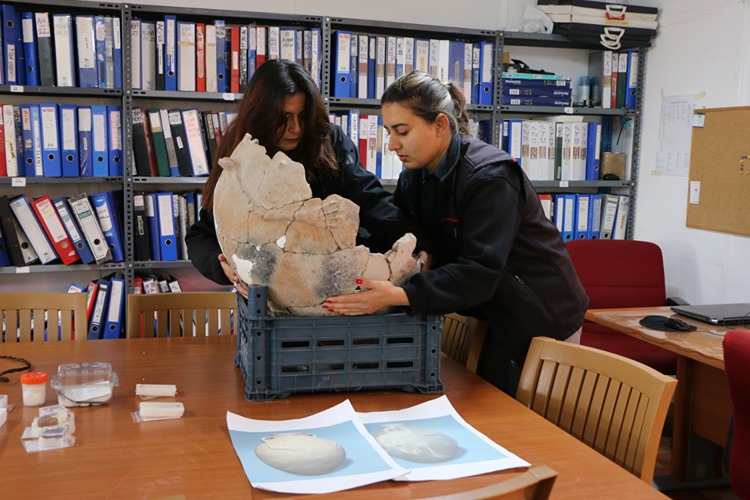
A 5,000-Year-Old Pithos Grave in Küllüoba Reveals a Hand Relief with a Missing Finger — A Possible Symbol of Mourning
Archaeologists working at Küllüoba Mound in Türkiye’s Eskişehir province have uncovered a striking find that sheds light on the emotional world of Early Bronze Age communities. A 5,000-year-old pithos grave (burial jar) features a hand relief with one finger missing — a detail researchers believe may symbolize an ancient expression of grief or mourning. The

Third Roman Hippodrome in Anatolia Unearthed Beneath the City of Kayseri
Archaeological research conducted in central Türkiye has uncovered the remains of a Roman-era hippodrome beneath the modern city of Kayseri — marking the third known example of such a monumental structure in Anatolia. The discovery offers rare insight into the architectural and social fabric of ancient Caesarea, the capital of the Kingdom of Cappadocia and
